
🆕🦀 A few hours ago, @rustlang 1.64.0 was released! 🎉
Just like every six weeks, at every new release, here's a thread with some of the highlights. 🧵
1/15
blog.rust-lang.org/2022/09/22/Rus…
Just like every six weeks, at every new release, here's a thread with some of the highlights. 🧵
1/15
blog.rust-lang.org/2022/09/22/Rus…
Rust now has a new async-related trait: IntoFuture.
The .await syntax be used on anything that implements IntoFuture. (Similar to how, with a for loop, you can iterate over anything that implements IntoIterator.)
This allows types to provide easier async interfaces.
2/15
The .await syntax be used on anything that implements IntoFuture. (Similar to how, with a for loop, you can iterate over anything that implements IntoIterator.)
This allows types to provide easier async interfaces.
2/15

Today's Rust release also comes with two more async-related tools:
The std::future::poll_fn function allows you to easily create a future from a closure (like iter::from_fn for iterators).
The std::task::ready!() macro extracts a Poll::Ready, or returns early on Pending.
3/15
The std::future::poll_fn function allows you to easily create a future from a closure (like iter::from_fn for iterators).
The std::task::ready!() macro extracts a Poll::Ready, or returns early on Pending.
3/15
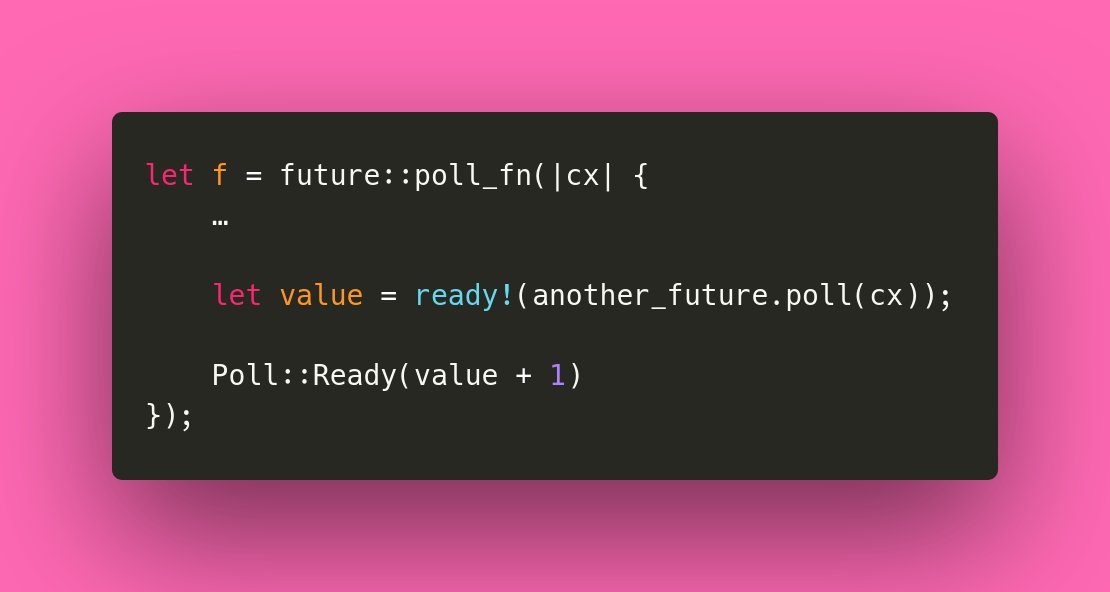
The Rust's NonZero types got new methods for (unsigned) addition, multiplication, exponentiation, absolute numbers, and next-power-of-two calculation, that all preserve "non-zero-ness": they return a NonZero type, because we know the result is never zero.
4/15
4/15
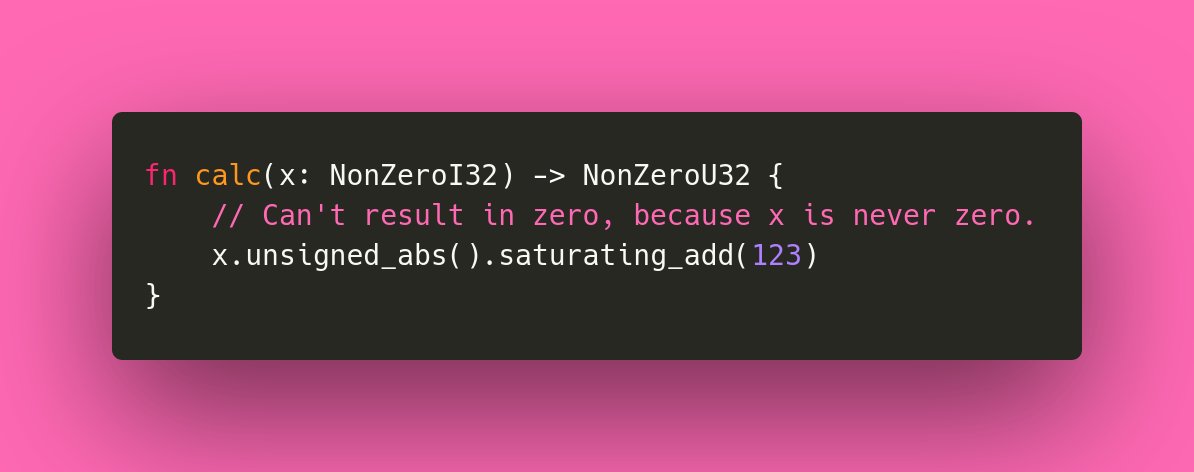
The types for interfacing with C, such as std::os::raw::c_int and c_void, have been moved to core::ffi. They are still available in the old (and new) location in `std`, but are now also available in `core`, for #![no_std] programs.
5/15
5/15
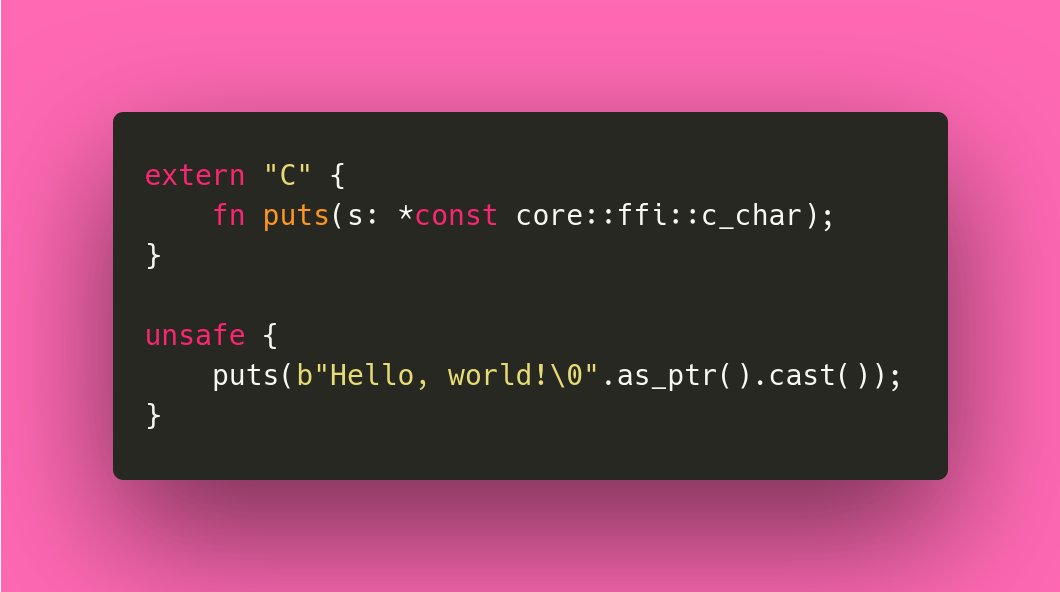
The OsString type now implements std::fmt::Write, which means you can write to it using the write!() and writeln!() macros.
6/15
6/15

The IP and socket address types, Ipv4Addr, Ipv6Addr, SocketAddrV4 and SocketAddrV6 now use a minimal, trivial internal representation, instead the libc types.
This clears the way for moving these types to `core` (no_std), and using these in const fns, in the future.
7/15
This clears the way for moving these types to `core` (no_std), and using these in const fns, in the future.
7/15
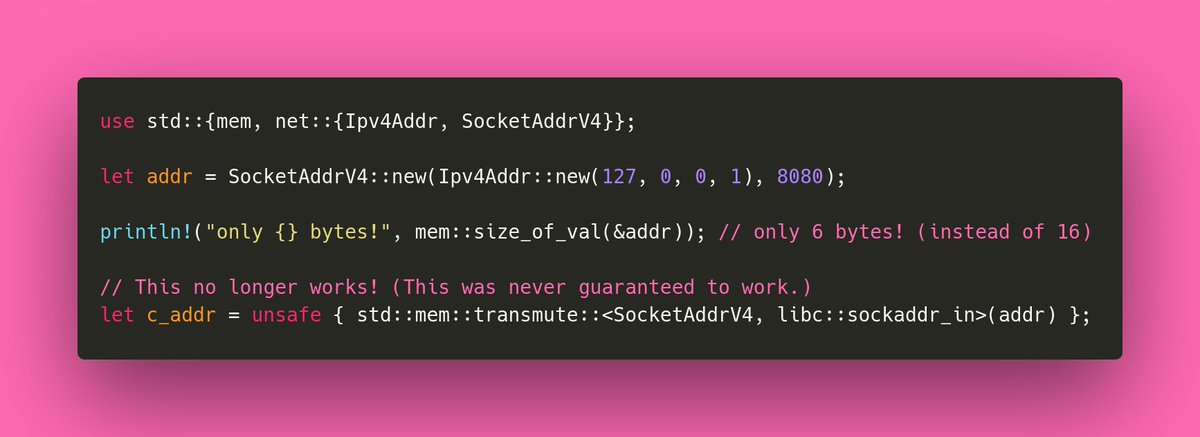
The atomic compare_exchange functions no longer require the success memory ordering to be at least as strong as the failure ordering.
(The same restriction was dropped from C++ as part of C++17.)
For example, compare_exchange(a, b, Release, Acquire) is now accepted.
8/15
(The same restriction was dropped from C++ as part of C++17.)
For example, compare_exchange(a, b, Release, Acquire) is now accepted.
8/15
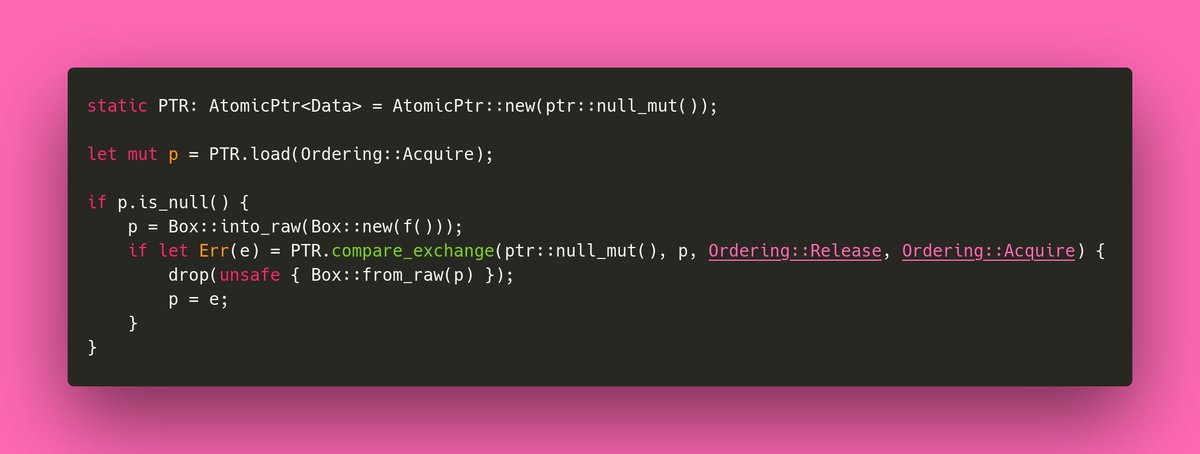
The std::slice::from_raw_parts function is now a const fn, allowing for even more code crimes at compile time. 😌
9/15![static X: [u32; 4] = [1, 2,...](/images/1px.png)
9/15
![static X: [u32; 4] = [1, 2,...](https://pbs.twimg.com/media/FdRisREaUAE2n_Z.jpg)
To allow for sound (unsafe) implementations of reference-counted allocated objects, it's no longer undefined behavior to keep a reference to something that's de-allocated, as long as you don't use it, and the object's bytes all reside in an UnsafeCell (e.g. an atomic).
10/15
10/15
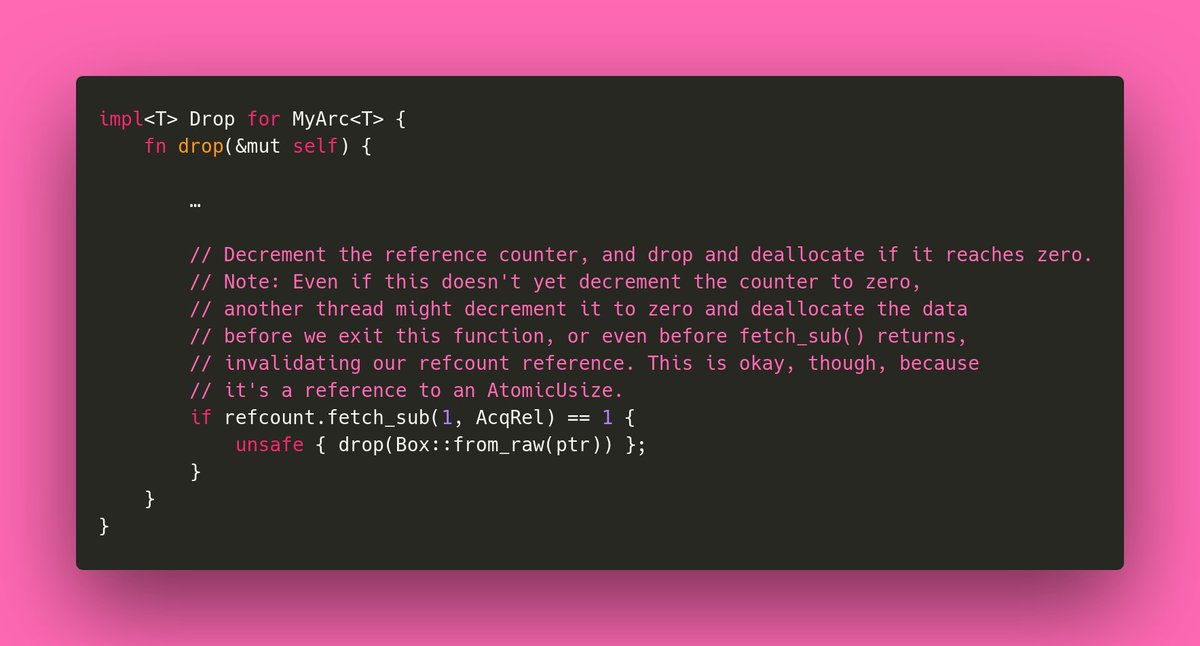
Rust 1.64 is the last release that ships with the deprecated old language server, RLS. Instead, starting with this release, the rustup distribution now includes @rust_analyzer.
(Nothing changes for most users. E.g. the VS Code extension will keep handling updates itself.)
11/15
(Nothing changes for most users. E.g. the VS Code extension will keep handling updates itself.)
11/15
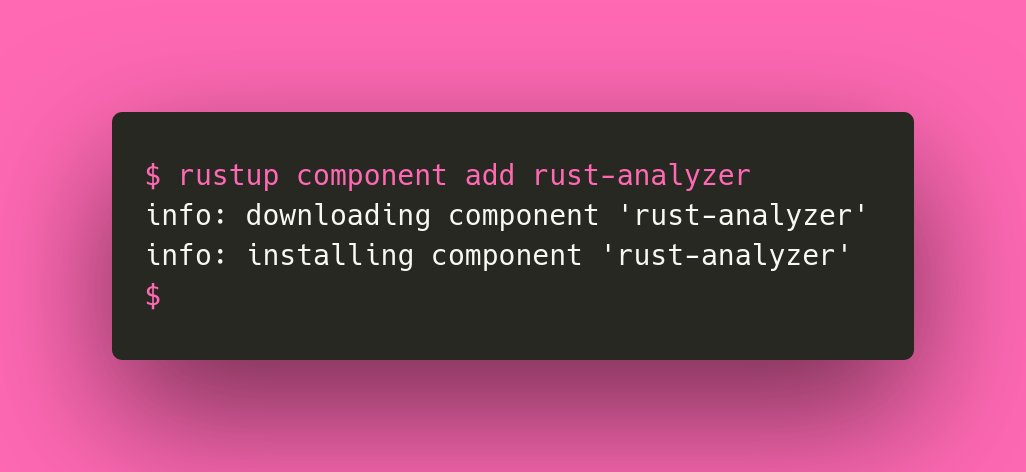
Cargo now makes it possible for a Cargo.toml file in a workspace to inherit dependencies and various package properties from the root Cargo.toml file. This makes it easier to handle large workspaces.
12/15
12/15
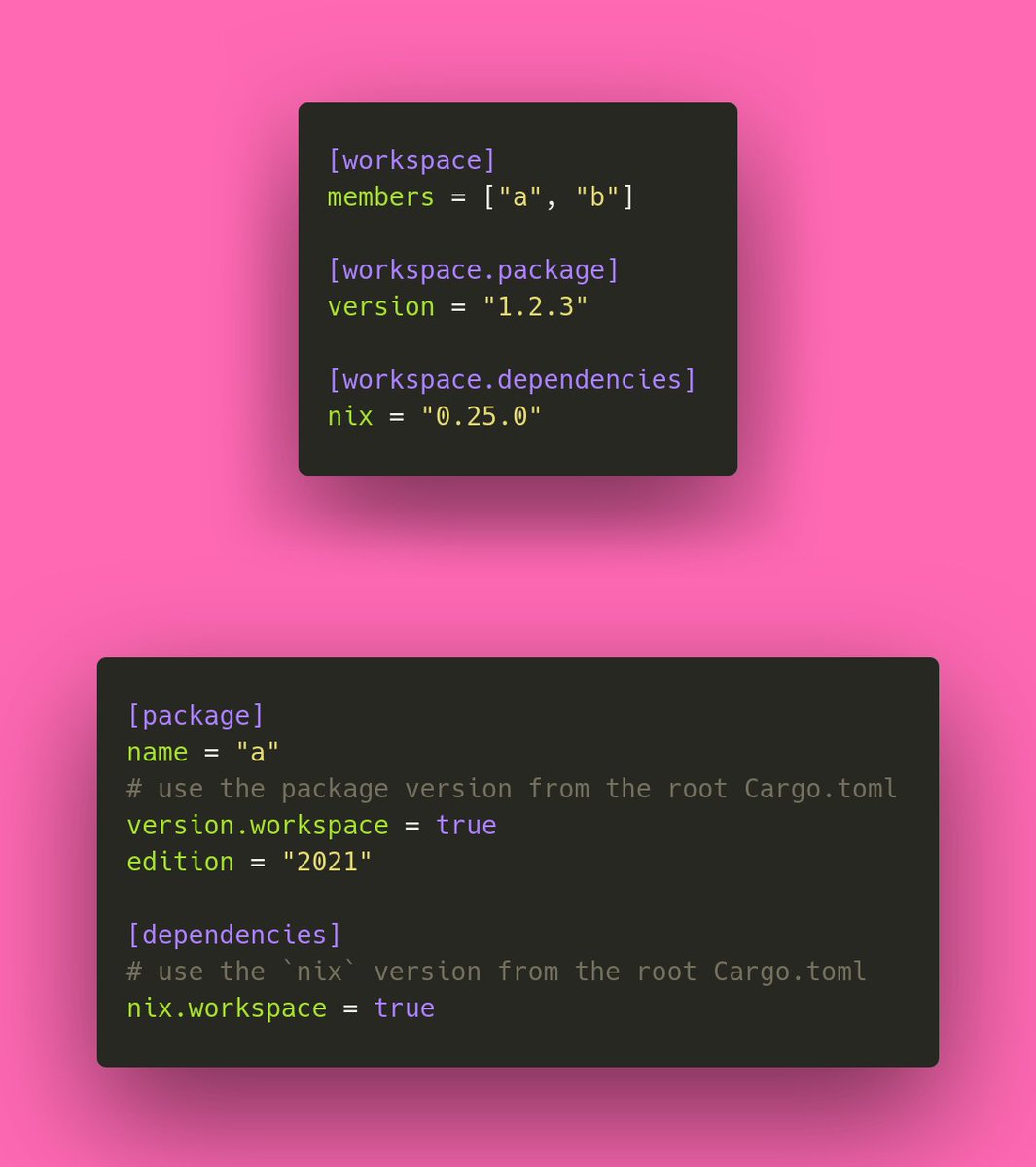
Initial support for the Nintendo Switch has been added: aarch64-nintendo-switch-freestanding as a "tier 3" target.
This doesn't include the Rust standard library, but makes it easier to compile no_std Rust programs for this platform.
14/15
github.com/rust-lang/rust…
This doesn't include the Rust standard library, but makes it easier to compile no_std Rust programs for this platform.
14/15
github.com/rust-lang/rust…
And that's everything for today's thread!
For a more complete list of changes in Rust 1.64, check the release notes:
Rust: github.com/rust-lang/rust…
Cargo: github.com/rust-lang/carg…
Clippy: github.com/rust-lang/rust…
Enjoy! ✨🦀
15/15
For a more complete list of changes in Rust 1.64, check the release notes:
Rust: github.com/rust-lang/rust…
Cargo: github.com/rust-lang/carg…
Clippy: github.com/rust-lang/rust…
Enjoy! ✨🦀
15/15
• • •
Missing some Tweet in this thread? You can try to
force a refresh

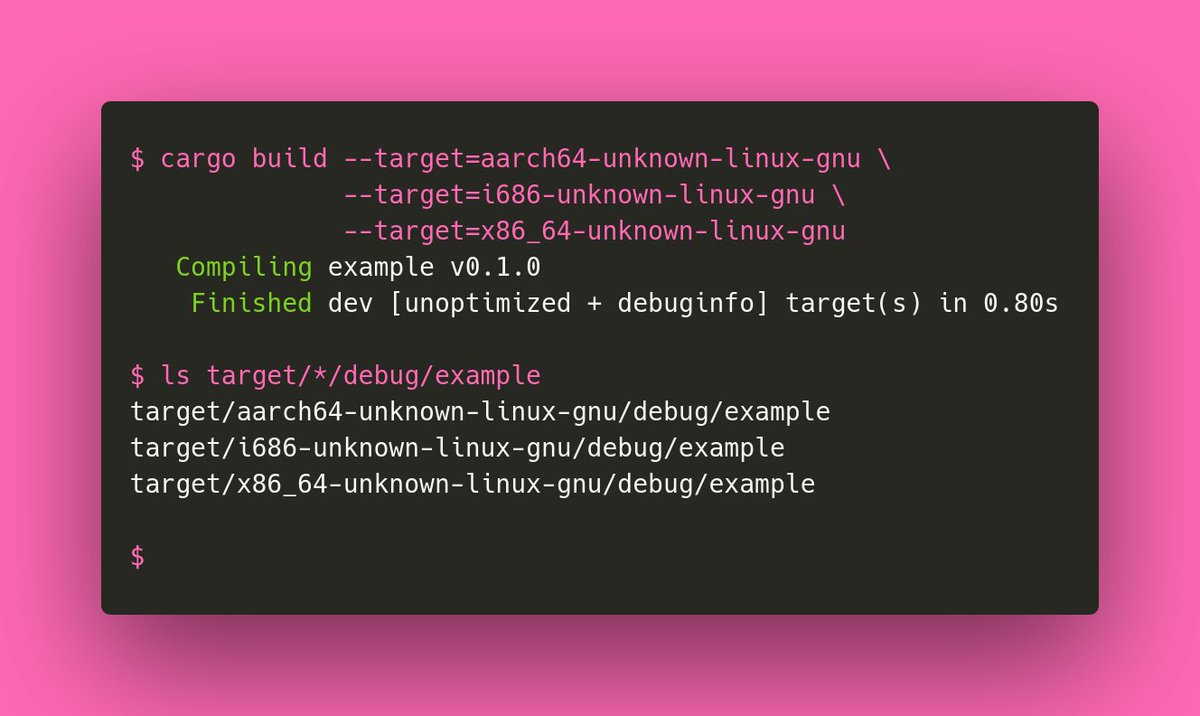

![let mut a = vec![1, 2, 3]; let mut x = 0; std::thread::scop](https://pbs.twimg.com/media/FZ43SBhacAM2APA.jpg)





![error[E0080]: evaluation of constant value failed --> src/m](https://pbs.twimg.com/media/FFnVNrCXMAAVWPD.jpg)


![for (i, x) in [1, 2, 3].into_iter().enumerate() { //](https://pbs.twimg.com/media/FCPgybTWEAMnupW.jpg)



